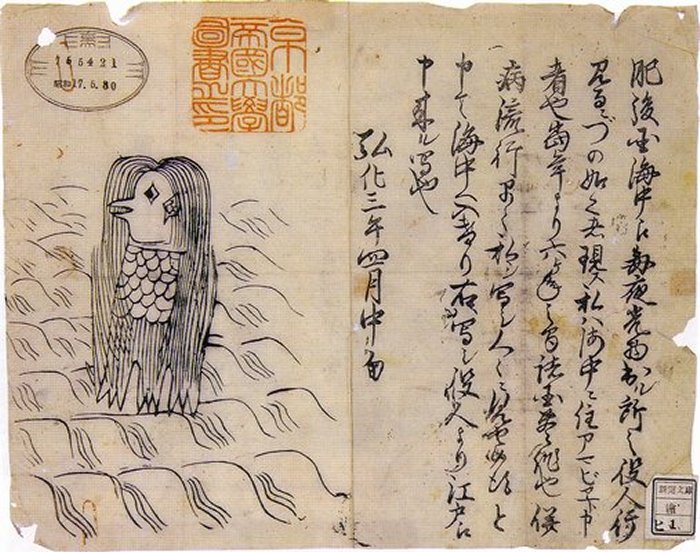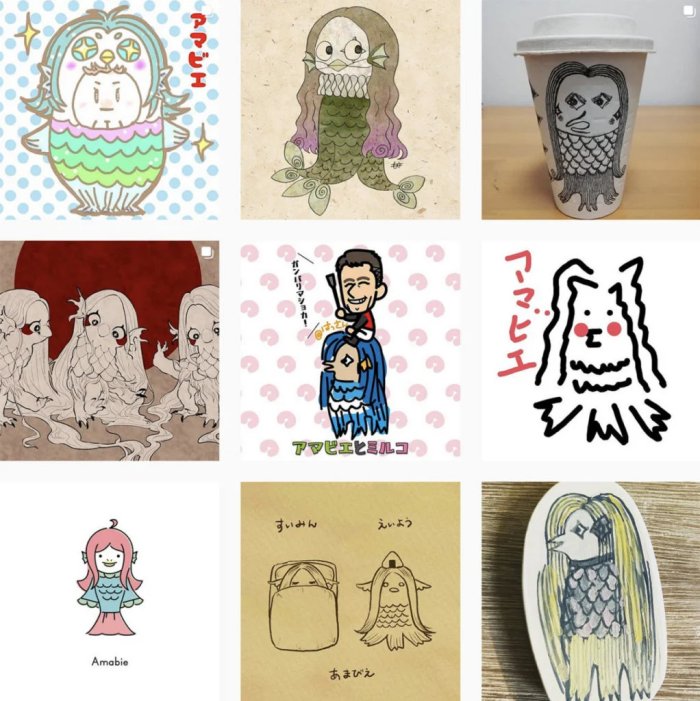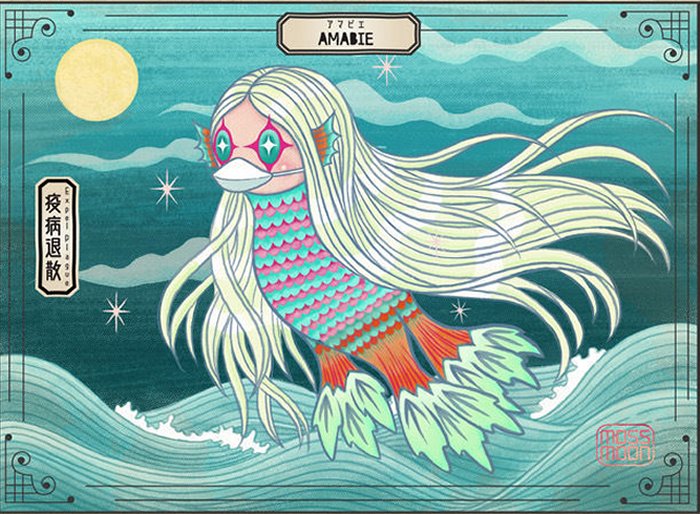Yokai Amabie – Protective Ancient Spirit That Can Ward Off Epidemics
Ellen Lloyd - AncientPages.com - Those who are not familiar with Japanese folklore have probably never heard about Amabie, but this little creature reminds us of the difficulties we must endure because of the coronavirus outbreak.
In Japanese mythology we encounter various types of Yokai, and one of them is known as Amabie. A Yokai is basically supernatural beings that dwell in the borderlands and in spaces, which are located “in-between”.
An amabie. Wood-block print, late Edo period. Credit: Public Domain
“Yokai begin where language ends. Mysterious sounds. Lights flitting through the graveyard. A flood that destroys one village and leaves another unscathed. A feeling that something is watching you in the darkness. How do we speak of things that are ungraspable, anomalous? What words can we use to signify things that evade established categories and seemingly refuse to conform to the laws of nature?
In Japan, as elsewhere, inexplicable occurrences and supernatural creatures have been part of the cultural imagination for as long as history has been recorded.
Broadly speaking, these diverse mysterious phenomena and weird “things” have come to be called yokai. In a sense, yokai is nothing more than a convenient label to indicate a whole range of otherwise ineffable experiences that might, in English, be translated with the words spirits, goblins, phantoms, specters, sprites, shape-shifters, demons, fantastic beings, numinous occurrences, the supernatural, and perhaps most commonly today, monsters.
This wide variety of possible translations speaks to the open-endedness of the word and hints at the many different ideas and nuances associated with it,” Michael Dylan Foster writes in his book The Book of Yokai: Mysterious Creatures of Japanese Folklore.
Amabie is a Japanese mermaid-like creature with long hair, a beak, and 3 legs.
According to an Edo-period tile block print dated 1846, Amabie appeared off the coast of Kumamoto, Japan. Amabie predicted a bountiful harvest for the next six years, but that’s not all.
This mythical Yokai came to humans with a message, giving people advice in case of an epidemic.
Amabie said - “Good harvest will continue for six years from the current year if disease spreads, show a picture of me to those who fall ill and they will be cured.” Afterward, Amabie returned to the sea, but the memory of the enigmatic creature has been kept alive.
via This is Colossal
Currently many are sharing drawings of Amabie on social media in hopes of repelling disease.
Since Yokai are believed to be creatures with supernatural powers, many artists in Japan and other countries are now turning to this protective ancient spirit that is said to ward off epidemics. By drawing images of Amabie, people are showing support against the coronavirus.
In accounts of Amabie, it is sometimes said that the image itself can ward off the epidemic,” Jack Stoneman, a Professor of Asian and Near Eastern Languages at Brigham Young University said.
“This is not unusual in Japanese cultural history—images as talismans.”
When Kaori Hamura Long was at home with flu-like symptoms she drew Amabie wearing a mask. Credit: Kaori Hamura Long
The fact that we can find images of Amabie on social media shouldn’t be interpreted as a religious call for help. As the coronavirus pandemic continues to take its toll, Amabie is here to show us that we are not alone. These wonderful images created by artists all over the world show solidarity. In times like these, it’s more important than ever to stand united.
Drawing an image of Amabie will not help us overcome the coronavirus outbreak, but it may give us some comfort and inner peace.
Written by Ellen Lloyd – AncientPages.com
Copyright © AncientPages.com & Ellen Lloyd All rights reserved. This material may not be published, broadcast, rewritten or redistributed in whole or part without the express written permission of AncientPages.com and Ellen Lloyd
More From Ancient Pages
-
 Mystery Of The Scottish Medieval Wanderer And The Bog Bodies At Cramond Investigated By Scientists
Archaeology | Mar 28, 2022
Mystery Of The Scottish Medieval Wanderer And The Bog Bodies At Cramond Investigated By Scientists
Archaeology | Mar 28, 2022 -
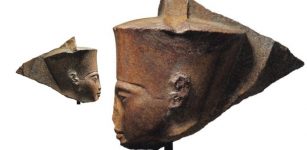 Egypt Calls On Christie’s Auction House In London To Stop Sale Of Tutankhamun Statue Head
Archaeology | Jun 14, 2019
Egypt Calls On Christie’s Auction House In London To Stop Sale Of Tutankhamun Statue Head
Archaeology | Jun 14, 2019 -
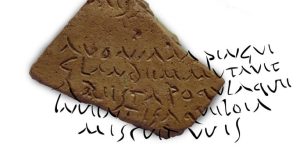 Incredible Discovery Of A Poem By Virgil On A Roman Oil Amphora
Archaeology | Jun 21, 2023
Incredible Discovery Of A Poem By Virgil On A Roman Oil Amphora
Archaeology | Jun 21, 2023 -
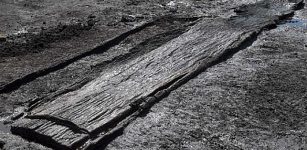 Bronze Age ‘Washingborough Boat’ Will Reveal Boat Building Techniques Of Ancient People
Archaeology | May 11, 2017
Bronze Age ‘Washingborough Boat’ Will Reveal Boat Building Techniques Of Ancient People
Archaeology | May 11, 2017 -
 Japan’s Ancient Practice Of Cranial Modification: The Case Of The Hirota People In Tanegashima
Archaeology | Aug 18, 2023
Japan’s Ancient Practice Of Cranial Modification: The Case Of The Hirota People In Tanegashima
Archaeology | Aug 18, 2023 -
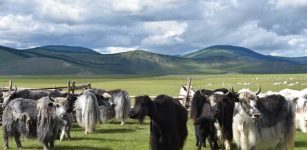 Yak Milk Consumption Among Mongol Empire Elites – New Study
Archaeology | Apr 1, 2023
Yak Milk Consumption Among Mongol Empire Elites – New Study
Archaeology | Apr 1, 2023 -
 Controversial ‘Anomaly’ Discovered On Mount Ebal Could Be Biblical Joshua’s Altar
Biblical Mysteries | Apr 6, 2020
Controversial ‘Anomaly’ Discovered On Mount Ebal Could Be Biblical Joshua’s Altar
Biblical Mysteries | Apr 6, 2020 -
 Mystery Of Pharaohs And Gods With Two Left Or Two Right Hands
Featured Stories | Oct 20, 2018
Mystery Of Pharaohs And Gods With Two Left Or Two Right Hands
Featured Stories | Oct 20, 2018 -
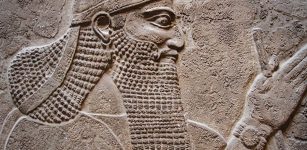 Unexpected Discovery Of 600 B.C Assyrian Palace In Shrine Destroyed By Isil Militants
Archaeology | Mar 2, 2017
Unexpected Discovery Of 600 B.C Assyrian Palace In Shrine Destroyed By Isil Militants
Archaeology | Mar 2, 2017 -
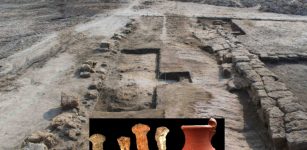 Ptolemaic Workshop For Repairing And Construction Of Boats Unearthed In Sinai
Archaeology | Feb 21, 2019
Ptolemaic Workshop For Repairing And Construction Of Boats Unearthed In Sinai
Archaeology | Feb 21, 2019 -
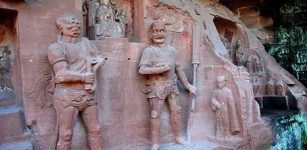 Dazu Rock Statues Of Clairvoyance And Clairaudience: Is One Of them Holding A Snake Or ‘Telephone Receiver” In His Hand?
Archaeology | Mar 8, 2017
Dazu Rock Statues Of Clairvoyance And Clairaudience: Is One Of them Holding A Snake Or ‘Telephone Receiver” In His Hand?
Archaeology | Mar 8, 2017 -
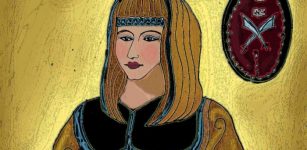 Sayyida Al Hurra – Feared And Respected Pirate Queen Of Morocco Had No-One To Turn At The End
Featured Stories | Mar 11, 2019
Sayyida Al Hurra – Feared And Respected Pirate Queen Of Morocco Had No-One To Turn At The End
Featured Stories | Mar 11, 2019 -
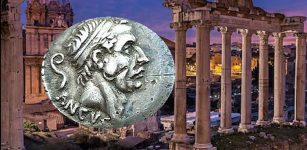 Ancus Marcius: Semi-Legendary Fourth King Of Rome Obliged To Make War To Defend And Expend Territories
Featured Stories | Jul 12, 2019
Ancus Marcius: Semi-Legendary Fourth King Of Rome Obliged To Make War To Defend And Expend Territories
Featured Stories | Jul 12, 2019 -
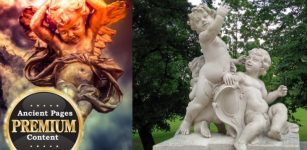 Biblical Cherubim – Sweet Angels Or Dangerous Creatures With A Hidden Agenda?
Biblical Mysteries | Jun 9, 2018
Biblical Cherubim – Sweet Angels Or Dangerous Creatures With A Hidden Agenda?
Biblical Mysteries | Jun 9, 2018 -
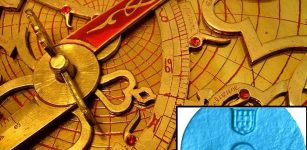 World’s Oldest Marine Navigation Tool Was A Sophisticated Astrolabe
Archaeology | Oct 25, 2017
World’s Oldest Marine Navigation Tool Was A Sophisticated Astrolabe
Archaeology | Oct 25, 2017 -
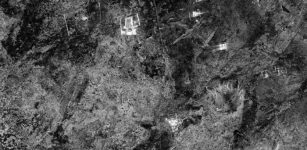 Evidence Of 3,600-Year-Old Settlement Unexpectedly Uncovered On Arabian Peninsula
Archaeology | Feb 2, 2022
Evidence Of 3,600-Year-Old Settlement Unexpectedly Uncovered On Arabian Peninsula
Archaeology | Feb 2, 2022 -
 Freemasons Secrets – American Democracy Is Part Of An Ancient Universal Plan – The Beginning And The Dream Of A Brotherhood Of Men – Part 1
Civilizations | Jul 12, 2018
Freemasons Secrets – American Democracy Is Part Of An Ancient Universal Plan – The Beginning And The Dream Of A Brotherhood Of Men – Part 1
Civilizations | Jul 12, 2018 -
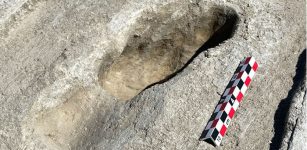 88 Ice Age Human Footprints In Utah Desert Shed New Light On Ancient Americans
Archaeology | Aug 11, 2022
88 Ice Age Human Footprints In Utah Desert Shed New Light On Ancient Americans
Archaeology | Aug 11, 2022 -
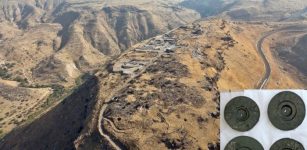 Ancient City Of Hippos-Sussita And The Mysterious Disc-Shaped Copper Plates
Archaeology | Apr 18, 2017
Ancient City Of Hippos-Sussita And The Mysterious Disc-Shaped Copper Plates
Archaeology | Apr 18, 2017 -
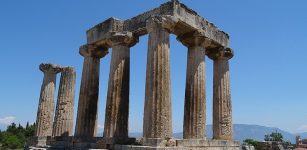 Ancient Greeks Had Knowledge Of Advanced Lifting Technology Long Before Modern Cranes Were Invented
Ancient Technology | Aug 29, 2019
Ancient Greeks Had Knowledge Of Advanced Lifting Technology Long Before Modern Cranes Were Invented
Ancient Technology | Aug 29, 2019

